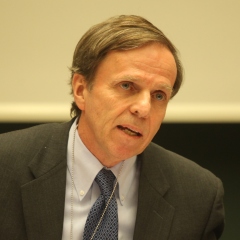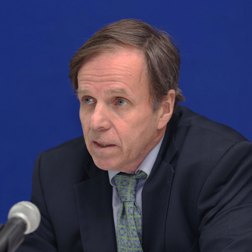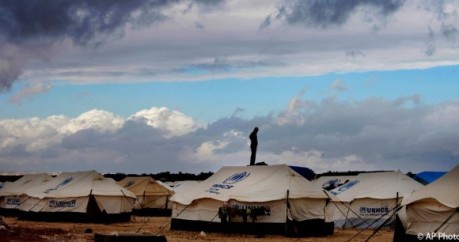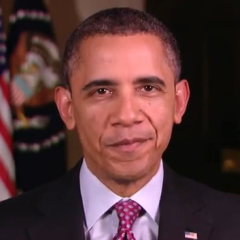AS DELIVERED
I am completing a four-day visit to Egypt during which I met with a wide range of people, including senior government officials, politicians, journalists, lawyers, religious leaders and other members of Egypt’s very vibrant civil society. I first visited Egypt more than 20 years ago and this was my seventh trip here since joining the State Department in 2009. I have been drawn here by the warmth of Egyptian people, the richness of their culture, their strong sense of history and national pride, and the passion with which Egyptians engage each other and the world.
Since January 2011 Egyptians have experienced a historic political transformation and taken the first, difficult steps towards building a sustainable, pluralistic democracy. Today the country faces a series of profound economic and political challenges that are testing people’s resilience and determination. Recognizing Egypt’s vital importance in the Middle East and in the world, the U.S. government has made a commitment to supporting Egypt’s economic and political future. In that context, it is more important than ever for the United States to strengthen our historic relationship through partnership with the Egyptian people, and we intend to do so.
In recent weeks there has been an escalation of violence in different parts of the country and coming from various quarters. This violence is one manifestation of a growing polarization within the society. Looking forward there is a need to build trust among Egyptians with differing political views and greater confidence in the institutions of their democracy. Young people, in particular, have taken to the streets. Some have engaged in violent confrontations with police and security forces, expressing frustration with lack of economic opportunity and accountability, and dissatisfaction with their inability to influence the political life and future of this country. Some of this violence appears to have no political motivation.. While recognizing the need for the Egyptian government to take specific steps to build confidence and to address valid concerns, we condemn this violence unequivocally. The road to democracy and stability in Egypt must be a peaceful one, building on the democratic developments of the last two years. There can be no turning back to the past. The challenge today is for Egyptians of various political perspectives and interests to find ways to discuss and debate their views, to engage in a genuine process of negotiation and compromise, and find common ground.
During my visit I focused on three key areas. The first relates to building a strong foundation for a sustainable, pluralistic democracy. Late last year Egyptians voted on a referendum that ratified a new constitution. While there are several positive aspects of this new document, many Egyptians have questioned both the process by which it was adopted and its content. This ongoing debate offers the government the opportunity to reach out widely to develop a consultative process that addresses these differences and helps to bridge a growing divide. On a parallel track, as the government examines possible new laws governing demonstrations and on the regulation of non-governmental organizations, it should do so in a manner that respects international principles of free assembly and association and the critical role civil society plays in any democratic society.
The second area pertains to the upcoming parliamentary elections, which offer political parties of diverse perspectives the opportunity to express their views and put forth a clear political and economic vision. We urge their wide and active engagement. These elections are an opportunity for Egyptians to chart their future. The United States will not choose sides or determine winners and losers in these or any elections. We join the international community in our expectation that the elections be free, fair and transparent. And we welcome the Egyptian government’s public commitment to allow wide and unfettered access to both domestic and international actors to observe or witness the balloting and the broader electoral environment.
The third area of concern relates to the security environment. Egyptian police and security forces now face almost daily challenges in the streets. While the vast majority of these demonstrators are peaceful, some protesters have resorted to violence. The police have the right, indeed the obligation, to ensure public order and to stop these violent actions. At the same time, there are credible reports that police and security forces have used excessive force. We have heard reports of cases throughout Egypt where the police have resorted to torture or other forms of cruel treatment of those in their custody. There are also reports of deaths in custody. Although some of these abuses are under investigation, successful prosecutions have to date been rare. This contributes to a climate of impunity and a lack of meaningful accountability for these actions. The criminal justice system also has failed to identify and bring to justice perpetrators involved in an alarming number of rapes and other acts of violence against women.
This is a pivotal moment in Egyptian history. Egypt’s future is in the hands of the Egyptian people. Today millions of Egyptians seek to live in dignity, to have economic opportunity and a say in their country’s political future. They want a sustainable, pluralistic democracy, rooted in human rights, official accountability and the rule of law, with the full and active participation of all Egypt’s citizens, including women, ethnic minorities and Egyptians of all faiths. The United States stands ready to work with those inside and outside of government who support these aspirations. And based on my many visits to this remarkable country, I am convinced that the Egyptian people will prevail in their quest for a democratic future.







